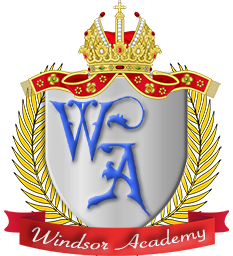Spelling: < - ship>
Spe l l ing: <-ship>
Spelling Test
•The children turn to the backs of their books and find the column labelled Spelling Test 33.
•Call out the spelling words learnt last week.
Revision
•Write these words on the board and revise the spellings for /shun/: posi tion, tension, impression, politician , operation.
•Remind the children that <-tion> can also say /chun/ and <-sion> can say /zhun/.
•Ask them to suggest other words with these endings, identify how they are said and discuss their meanings.
Spelling Point
•Remind the class that knowing a prefix, suffix or word root can often help in working out the meaning of an unfamiliar word.
•For example, the suffix < -ship> comes from the Old English word scipe, meaning a condition or something with a certain quality.
•It is used to make nouns having the quality, condition, position, relationship or skill of the root word, as in leadership, hardship, lordship, friend ship and craftsmanship. It can also describe the collective members of a group, as in membership.
•Look at some further spelling words with the class and discuss their meanings.
Spelling List
Activity Page 1
•The children split each spelling word into syllables (kin/ ship, hard / ship, lord / ship, worlship, own/ er/ ship, memlberlship, part lnerlship, friend / ship, spon lsorlship, cit lilzenlship, {el/ low/ ship, re/la / tionlship, crafts / man/ ship, lead / er/ ship, chaml pi / on/ ship, com/pan/ion / ship, aplprenlticelship, cenlsor / ship).
•They then write out some of the spelling words in the suffix fish, putting the root words in the fish’s bodies and the suffixes in the fish’s tails.
Activity Page 2
•The children write the meanings for each pair of
•Go through the list, identify the syllables in each word and discuss the meaning of any unfamiliar words.
•Ask the class to find and highlight each <ship> spelling.
•Point out other spelling features, such as the <k> spelling in kinship, the <or> saying /er/ after <w> in worship, the <ow> spelling of
/oa/ in ownership and fellowship , the schwas (as in ownership, sponsorship and citizenship), the silent <i> in fri endship, the soft <c> in citizenship, apprenticeship and censorship, the double consonants in f ellowship and apprenticeship, the <e> saying Iii and <ation> saying
/ai-shun/ in relationship, the <ea> spelling of lee/ in leadership and the
kinship hardship lordship worship ownership membership partnership friendship sponsorship citizenship fellowship relationship craftsmanship leadership championship companionship apprenticeship censorship
homophones, using a dictionary if they are unsure of any words.
•Then they parse the sentence and complete the wall.
•In childhood is a prepositional phrase acting as an adverb, so orange brackets can be put around it.
Their long friendship had started in childhood . Top:friendship – had started – (blank)
Bottom: Their long – in childhood – (blank) Verb: intransitive
Dictation
•Dictate the following sentences:
1. The tennis player was furious when he lost the championship.
2. The ownership of the priceless painting is in question.
3. The art expert exclaimed , ”What fabulous craftsmanship!”
<ion> spelling in championship and companionship.
•It is a good idea to blend and sound out the spelling words quickly every day with the children, using the ‘say it as it sounds’ strategy where appropriate, or you could break down the words into root (word) and suffix.
•Remind them to use speech marks with the correct punctuation in sentence
